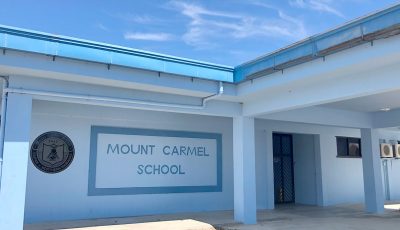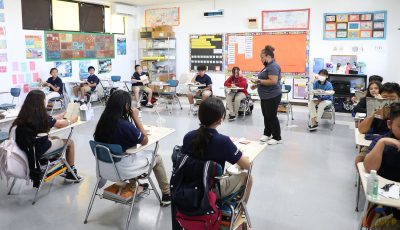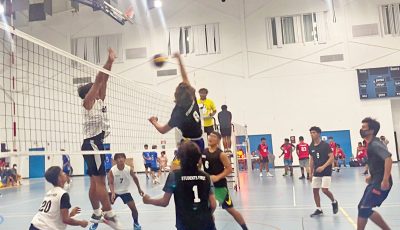4-day school week in SY 20-21
The Public School System aims to continue the four-day school week schedule that was approved by the Board of Education right before the COVID-19 pandemic struck the CNMI back in March.
That, plus reducing all personnel and key PSS management to a 64-hour work schedule means PSS could save up to $6.4 million next school year, said Lucretia Borja, PSS Human Resources director, during a Board of Education meeting yesterday.
Ultimately, continuing with the four-day school week into the next school year and fiscal year would not disrupt the educational process at this time, she explained.
“We are in state of pandemic with COVID-19. The focus should be at preparing for the new school year and student learning. We are monitoring and cognizant of the economic downfall and potential decrease in projected budget for [fiscal year] 2021, therefore PSS will continue with the 64-hour bi-weekly work required to operate with minimal disruptions,” she said. “Our goal is to continue to ensure that we live within our means and avert fiscal year shortfalls that will impact PSS’ mission, which is to provide quality public education. PSS has invested a lot of time and money producing highly effective, seasoned, and passionate instructional and non-instructional staff. Therefore, we must address the funding issue and avoid further cuts of teacher pay rates. Reducing the salaries of teachers and support staff at this time will affect morale and disrupt the learning process.”
In Borja’s presentation, she broke down the 64-hour compensation plan, or work schedule, into three phases. Phase I covers key management, school administrators, directors, program managers, and education specialists and coordinators. Phase II is classroom teachers, school counselors, librarians, and instructors. Phase III is all other position classification like teacher aides, bus drivers, building maintenance workers, administrative, accountants, trades specialist, personnel specialist, procurement specialist, and more.
Phase I was approved last June 4 but will be effective starting July 6, while phases II and III were effective since March, right before schools were forced to shut down as a result of COVID-19.
Borja said that the 64-hour work schedule will continue indefinitely. Once funding improves for PSS, PSS will revisit the compensation plan.
“Compensation of 64 hours bi-weekly work that is still in effect since March 2020 will continue for phases II and III groups in [fiscal year] 2021. In the event funding level improves, then PSS will revisit the compensation and determine if austerity will be lifted partially or fully,” she said.
Borja said if Phase II of the 64 hours bi-weekly work schedule continues, then PSS would see a cost savings of $4.2 million annually under local funding while if Phase III continues, PSS would see a cost savings of $1.2 million annually under local funding. This would bring PSS’ total cost savings for phases II and III to $ 5.4 million annually.
If the 64-hour bi-weekly work schedule is implemented only on the Phase I group, PSS expects to see a cost savings of $1 million.
Borja said this work schedule only applies to locally funded employees, so federally funded staff will not be affected and will continue to work 80 hours and receive 80 hours of pay bi-weekly.



























